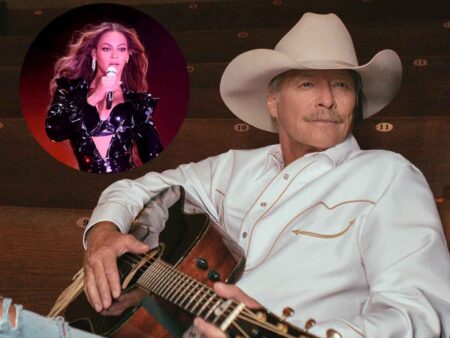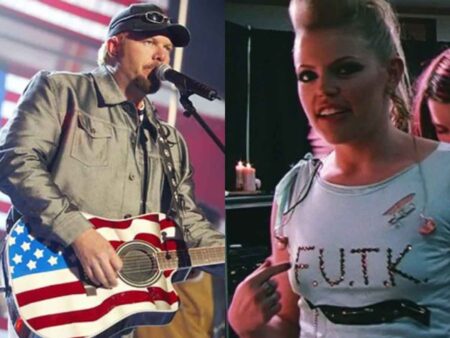What is country music—really?
That question has resurfaced with renewed urgency thanks to a now-viral image: a fork in the road. One sign reads “Country Music,” the other “Not Country Music.” And squarely on the “Not Country” side? A photo of Beyoncé.
To some, it’s just a joke. To others, it’s a cultural flashpoint—especially with the release of Beyoncé’s latest foray into country, signaling that the genre, once tightly guarded, is being redefined in real time. The image reflects a broader divide among fans, musicians, and industry insiders about who gets to claim the country label, and what—if anything—still makes country music “country.”
Contents
Blurring Boundaries and Changing Tastes
Country music has always evolved. The twangy Appalachian ballads of the 1930s gave way to the honky-tonk sounds of the ’50s, which later made room for the polished, pop-tinged country of the ’80s and beyond. Each wave brought tension—and resistance.
In the 2000s, artists like Taylor Swift and Florida Georgia Line pushed country into the pop mainstream. Now, in the age of social media and genre-fluid streaming playlists, the lines are blurrier than ever. TikTok hits like “Fancy Like” and “Rich Men North of Richmond” top country charts even as fans debate whether they truly belong there.
And then there’s Beyoncé.
Beyoncé’s Country Chapter
This isn’t her first rodeo with country. Beyoncé’s 2016 track “Daddy Lessons,” from Lemonade, drew immediate attention for its country roots. She even performed it with The Chicks at the Country Music Association Awards—prompting a wave of applause and backlash.
For supporters, her inclusion is overdue. Country music owes much to Black artists, from Ray Charles to Charley Pride. Even the banjo has African roots. Beyoncé’s entrance into the genre highlights that legacy and pushes back on the notion that country belongs solely to one culture or region.
But others aren’t sold. Critics question her authenticity, her accent, or the instrumentation on her new songs. To them, this feels like a pop star borrowing cowboy boots for the aesthetic—yet another move away from fiddles, pedal steel, and southern storytelling.
A Genre at a Crossroads
What Beyoncé represents isn’t just one artist crossing over—it’s the genre itself standing at a fork in the road.
On one side are fans longing for the classic sounds of George Jones, Reba McEntire, and Alan Jackson. For them, “country” means acoustic instruments, narrative lyrics, and a kind of moral clarity. The songs reflect rural values and southern identity—things they feel are being lost in the shuffle.
On the other side are fans who embrace evolution. They see country not as a static form but a living, breathing genre that can—and should—grow. To them, Beyoncé is not an outsider but a welcome voice, opening up the genre to broader stories and new sounds.
And in the middle? Millions of curious listeners, watching the debate unfold and asking, “Why not both?”
The Power of Going Viral
A big part of this debate plays out not on the radio, but online. Beyoncé’s presence in country has sparked passionate comment threads and viral videos. And that’s telling.
In today’s music world, virality often decides what’s country—regardless of tradition. Morgan Wallen’s massive chart dominance wasn’t driven by Nashville’s establishment. Zach Bryan’s stripped-down storytelling gained momentum through word of mouth and social media. Beyoncé’s new tracks are already being dissected on TikTok and Twitter, long before country radio makes a call.
In a way, country music’s identity crisis is also a platform crisis. The gatekeepers have changed. What’s trending may not sound like Johnny Cash—but it’s what the next generation is clicking, sharing, and singing.
Beyond the Binary
Beyoncé’s country moment is forcing a conversation that’s been simmering for years: Who decides what country music is? And is there still room for everyone?
The irony is that country music has always contained multitudes. For every outlaw, there’s a crooner. For every back-porch ballad, a stadium anthem. The genre’s greatness has often come from its tension—between old and new, rural and urban, heartache and hope.
Maybe Beyoncé doesn’t fit the mold. But maybe the mold was never meant to be so rigid.
What Comes Next?
As country music continues to expand its reach, its future likely won’t rest in purity tests. It will live in the songs that connect—whether they come from Nashville, Houston, or somewhere in between.
One thing’s certain: if the genre can’t handle a little crossover, a little challenge, and a few new voices, it may be standing on the wrong side of the road.




